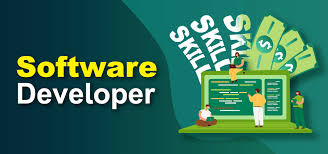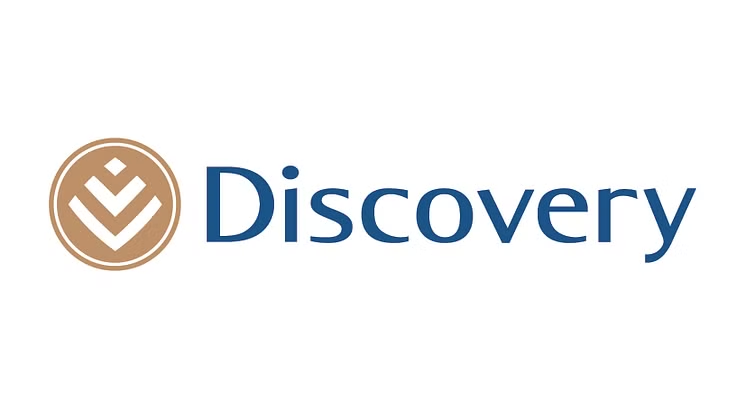Discover how to become a Data Scientist or Data Analyst in South Africa. Learn the skills, qualifications, career paths, salaries, and step-by-step guide to enter the data industry successfully.
Introduction
South Africa’s digital economy is growing rapidly. Businesses, banks, retailers, insurance companies, and government agencies are all making data-driven decisions. This has created an urgent demand for professionals who can collect, clean, interpret, and visualize data to support decision-making.
If you’ve ever wondered how to start a career in data science or data analytics in South Africa, this guide breaks down the skills, qualifications, and steps to succeed.
By the end of this article, you’ll know:
- What data scientists and data analysts actually do
- The difference between the two roles
- The qualifications and skills you need
- Where to study and upskill
- Job outlook and salary ranges
- How to gain experience and land your first job
1. Understanding the Roles: Data Scientist vs. Data Analyst
Before you plan your career path, it’s important to know the difference between these roles.

1.1 What is a Data Scientist?
A data scientist develops models and algorithms to solve complex business problems. They use advanced statistical and machine learning techniques to find patterns in data.
Key tasks include:
- Building predictive models
- Data mining and big data analysis
- Working with programming languages like Python or R
- Designing experiments and A/B testing
- Communicating findings to stakeholders
1.2 What is a Data Analyst?
A data analyst focuses more on interpreting existing data to help businesses make decisions. They create dashboards, reports, and visualizations.
Key tasks include:
- Cleaning and organizing data sets
- Using Excel, SQL, and BI tools (Power BI, Tableau)
- Running basic statistical analyses
- Identifying trends and producing actionable insights
1.3 Salary Outlook
- Data Analysts in South Africa earn between R250,000 and R550,000 per year depending on experience.
- Data Scientists can earn between R450,000 and R1 million+ per year, especially in finance, insurance, and tech.
2. The South African Demand for Data Skills
South Africa’s 4IR (Fourth Industrial Revolution) agenda is pushing for AI, cloud computing, and data analytics adoption.
Key industries hiring data professionals:
- Banking & Financial Services
- Retail & E-commerce
- Telecommunications
- Healthcare & Insurance
- Mining & Energy
With companies like Discovery, Standard Bank, Takealot, MTN, and Sasol investing in data, the demand will only grow.
3. Educational Pathways: Degrees, Diplomas, and Online Courses
3.1 Formal Education
While it’s possible to enter data analytics without a degree, having a strong academic background gives you an advantage.
Relevant degrees include:
- BSc Computer Science
- BSc Data Science
- BSc Statistics
- BCom Information Systems
- BCom Economics
Top South African universities offering data-related programs:
- University of Pretoria (BSc Data Science)
- University of Cape Town (UCT) – Data Analytics and Statistical Sciences
- Wits University – BSc Applied Mathematics and Data Science
- Stellenbosch University – Statistics and Machine Learning
3.2 Diplomas and Certificates
If you’re already working and want to pivot into data, short courses and diplomas are ideal:
- UNISA Short Learning Programmes in Data Analytics
- Stellenbosch Business School Data Science courses
- ExploreAI Academy Data Science Bootcamp
3.3 Online Learning Platforms
Global online platforms are highly respected by South African employers:
- Coursera (IBM Data Science, Google Data Analytics Professional Certificate)
- edX (MIT and Harvard data science tracks)
- DataCamp (practical Python and R courses)
- Kaggle micro-courses
4. Essential Skills for Data Scientists and Analysts
4.1 Technical Skills
- Programming Languages: Python, R, SQL
- Data Visualization Tools: Power BI, Tableau, Excel
- Statistical Analysis: Hypothesis testing, regression, time series
- Machine Learning (for data scientists): supervised, unsupervised, NLP
- Big Data Tools: Spark, Hadoop (optional but valuable)
4.2 Soft Skills
- Problem-solving and critical thinking
- Communication and storytelling with data
- Business acumen
- Team collaboration
5. Gaining Practical Experience
5.1 Internships
Look for data-related internships at banks, consultancies, or tech firms. Even junior reporting or business intelligence roles count.
5.2 Projects and Portfolios
Create your own projects to showcase skills:
- Analyze publicly available South African datasets (StatsSA, Kaggle SA datasets)
- Build a dashboard showing COVID-19 trends or crime statistics
- Participate in hackathons like Explore Data Science Hackathons
5.3 Freelancing and Volunteering
Offer your data skills to NGOs or small businesses for free or low cost to build a portfolio.
6. Step-by-Step Guide to Becoming a Data Scientist or Analyst in South Africa
- Finish Matric with good marks in Maths and Computer Studies.
- Get a relevant qualification (degree, diploma, or online certificate).
- Learn key technical tools (Python, SQL, Power BI, Tableau).
- Build a portfolio with real-world data projects.
- Complete internships or entry-level jobs (junior data analyst, reporting analyst).
- Network on LinkedIn and join communities like Zindi Africa and Women in Data Science South Africa.
- Apply for full-time roles once you have skills and experience.
- Keep learning—data science evolves quickly.
7. Job Search Strategies in South Africa
- Use local job portals like Careers24, PNet, Indeed South Africa.
- Follow big employers on LinkedIn.
- Register with specialist recruitment agencies focusing on analytics.
- Attend tech meetups, webinars, and data conferences.
8. Future Outlook: Why This Career is Worth It
The South African government and private sector are investing in data-driven technologies. AI, predictive analytics, and cloud computing will create more roles for data professionals.
This career also offers:
- High earning potential
- Remote work opportunities
- Global mobility
9. Common Challenges and How to Overcome Them
- High Competition: Differentiate yourself with certifications and a strong portfolio.
- Lack of Experience: Take internships, volunteer, or work on personal projects.
- Constant Learning: Block out time each week to learn new tools and methods.
10. Conclusion
Becoming a data scientist or data analyst in South Africa is achievable with the right blend of education, technical skills, and practical experience. Whether you’re a school leaver planning your studies or a working professional switching careers, the data industry offers enormous opportunities for growth.
Start small, learn continuously, and showcase your skills. Within a few years, you could be part of South Africa’s next generation of data leaders.














Leave a Reply